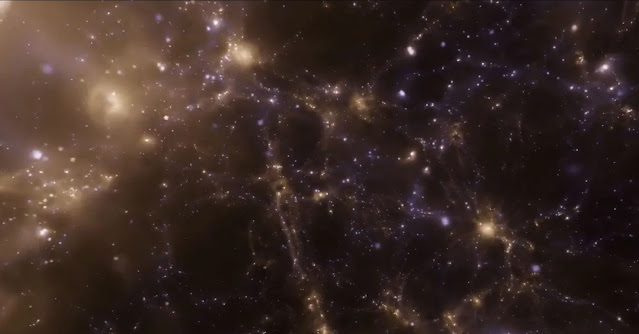It makes up most of the universe, yet hardly anything is known about the so-called Dark Energy that envelopes us.
The unusual 'something' – one of the great mysteries of cosmology – is believed to be an unknown force that is pushing things apart more strongly than gravity and causing the universe's expansion to accelerate.
Now, scientists from Imperial College London believe they may finally have an explanation for the source of unknown energy — black holes.
Dr Chris Pearson, study co-author, said: 'If the theory holds, then this is going to revolutionize the whole of cosmology.
'At last we've got a solution for the origin of dark energy that's been perplexing cosmologists and theoretical physicists for more than 20 years.'
Astronomers have always believed that Dark Energy could revolutionize physics as we know it, because its discovery 20 years ago threatened to blow Albert Einstein's research out of the water.
The legendary physicist can rest easy for now, however, because the team of international researchers have found the first evidence that Dark Energy really does fit with his Theory of Relativity after all.
The main stumbling block to Einstein's science – black holes and how their extremely strong gravity could be opposed by a secret force expanding the universe – has been dismissed by experts at the University of Hawaii and Imperial.
They say that the Theory of General Relativity is correct because black holes actually contain Dark Energy, or the energy from space that Einstein originally predicted.
It also means that nothing 'new' or undiscovered has to be added to our picture of the universe to account for the 'missing' 68 per cent that Dark Energy equates to.
Not only that, but the idea of black holes having a 'singularity' at their centre where nothing – not even light – can escape, has been brought into question, too.
The new theory provides a way to 'circumvent' this mathematical problem, the researchers say, by making the idea of a singularity 'go away'.
Essentially, the Big Bang theory of the creation of our universe originally predicted that its expansion would slow down – or even begin to contract – because of the pull of gravity.
But in 1998, astronomers were surprised to find that not only was the universe still expanding, this expansion was also accelerating.
To account for this discovery, it was proposed that a 'Dark Energy' was responsible for pushing things apart more strongly than gravity.
This was linked to a concept Einstein had proposed but later discarded — a 'cosmological constant' that opposed gravity and kept the universe from collapsing.
Black holes posed a problem though — their extremely strong gravity is hard to oppose, especially at their centres, where everything seems to break down in a phenomenon called a 'singularity'.

Comments
Post a Comment